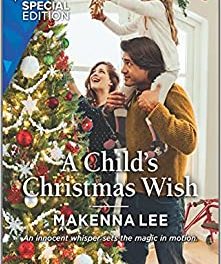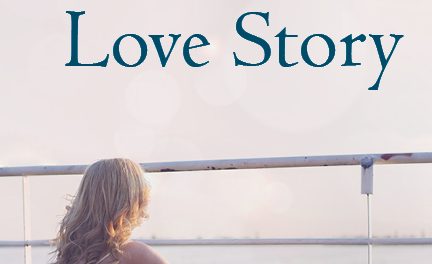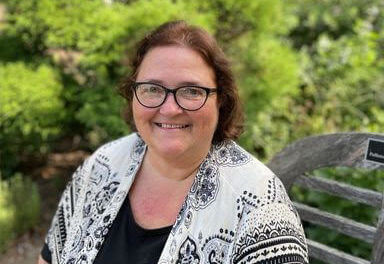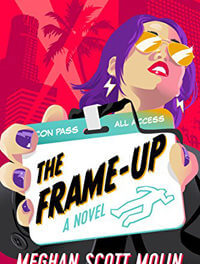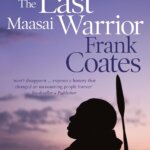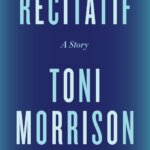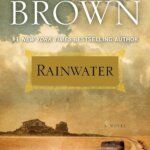Today I am interviewing Negeen Papehn, author of the Forbidden Love series. She was born and raised in southern California, where she currently lives with her husband and two boys. She wasn’t always a writer. A graduate of USC dental school, Negeen spends half of her week with patients and the other half in front of her laptop. In the little time she finds in between, she loves to play with her boys, go wine tasting with her friends, throw parties, and relax with her family.
Her debut novel Forbidden by Faith (Forbidden Love series Book 1) is currently out with City Owl Press.

SS: How does your home and its environment influence your writing? To what extent?
NP: I write own-voice novels so my MCs are modeled after my Iranian heritage. The cultural expectations I grew up surrounded by, the familial obligations I still struggle with, and the small idiosyncrasies that are only understandable to a Persian girl like myself, are all very much influencers of the novels I write. They provide the foundation for my storylines, helping me weave together words that give my readers glimpses into a culture they know very little about.
SS: If you have children, does being a parent influence your writing? To what extent?
NP: I think that being a parent definitely influences my writing. It allows me the ability to see the story through multiple points of view. For instance, I can tap into the younger twenty-something version of myself to create the MCs perspective, and then switch over to the mother I am today, in order to write the parental reactions to the MCs decisions.
In addition to that, the mere fact of having children creates time constraints on my writing. Real life responsibilities are always in the forefront, pushing my writing needs to the back of line. I’ve mastered the art of juggling, writing in the tiny spaces between what life requires of me. I now have the ability to write a paragraph, walk away for minutes or hours, then come back and pick up right where I left off, without skipping a beat. My kids provided a writing boot camp of sorts, to be honest.
SS: What in your childhood do you believe contributed to your becoming a writer?
NP: Despite how social people think I am, I was a super shy kid growing up. I was kind and quiet, always a silent spectator of the more popular kids that seemed to experience these amazing, big, moments. Because I always wanted to know what it felt like to be the girl with all the attention, or have the popular boy fall in love with me, I created stories in my head that I’d write in a spiral notebook. It was my way of experiencing all the emotions I thought others were feeling in real life.
SS: Could you say something about your relationship to your fictional characters? How autobiographical do you think your fiction is?
NP: I’m a firm believer that there are pieces of authors in all of their characters. I’m no exception. My characters aren’t autobiographical in the literal sense, but I’ve come to realize that they each carry a part of me in the person they become. My three MCs in the Forbidden Love series are a different version of my personality. Sara has the intimidated, indecisive, softer character traits I possess, Leyla the rational, positive, even-mannered pieces. And Bita is the strong-willed, no nonsense, badass I can sometimes be.
SS: Khaled Hosseini (The Kite Runner) says that he feels he is discovering a story rather than creating it. Are you a plotter? Or do let the novel develop organically?
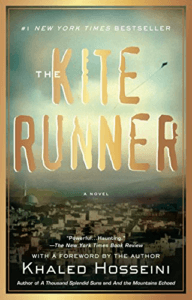
NP: I’m most definitely not a plotter, despite how badly I want to be. I think if I was, there would be a lot less plot holes and corners I write myself into. And I’m sure my CP would be so much happier if she didn’t have to keep digging me out of them! But sadly, I try to plot, and somewhere along the way, I inevitably veer off course. I’m a want-to-be plotter, but the panster in me always wins.
I love Khaleed Hosseini, by the way, so the fact that he’s also a panster of sorts, makes me feel better about my inability to plot!
SS: Do you generally write in one genre? If so, what is it? And what can readers expect from one of your books?
NP: I generally write romance. And if it does end up being another genre, it’s only because I sometimes have a tough time adhering to the happily-ever-after requirements. But regardless, love is always a main theme.
I’m a “feels” junky, which means I love to take my readers on a roller coaster ride of emotions, where I make them fall in love and break their hearts, all at the same time. Some have said it’s exhausting to deal with all the feelings that are required when reading my books. I don’t take that as an insult, since it’s exactly what I’m going for. So if a reader picks up my stories, they should be ready to swoon, cry, have their hearts beat uncontrollably in their ribcage, and then have it ripped out of their chest and stomped on. But I promise, in the end, it’ll be worth it.
SS: Do you believe you write the kind of book you’d want to read?

NP: I do. As I said earlier, I write heavily emotional books, which are my favorite kind to read. One of the best romances I’ve read is You Before Me, by JoJo Moyes. I loved it so much because she had me fall in love with her characters, then broke my heart in all the right places in the end. I was depressed over that novel for an entire week after I turned the last page. I still can’t watch the movie without a pit of sadness sitting squarely in my chest the entire time, because I know what’s coming. I aspire to have my stories affect my readers in the same way.
SS: What role does consent and the #MeToo movement play in your writing?
NP: The second book in my Forbidden Love series actually deals with the #metoo movement. My main character experiences sexual assault and the aftermath that follows. I show the situation through the victim’s perspective, hoping to shed more light on the movement. I had sensitivity readers for this one to make sure my MCs reactions, and those of the people around her, were authentic. I’m really proud of this story. I was given the privilege of hearing the details of the assault experiences of women I respect, so it holds a very special place in my heart. I hope readers who pick it up will be proud as well.
SS: What’s the most difficult thing about writing characters of the opposite sex?
NP: I think the most difficult part about writing characters of the opposite sex is being authentic. As a woman, it’s tough sometimes to write a scene from a male’s perspective, or fabricate their reactions, in a way that is real and not stereotypical, or at the same time, too influenced by my own feminine experiences. I actually have male sensitivity readers for this as well. I don’t have the issue of being terrified to share my work with others. As a matter of fact, I prefer to hear all the negative comments and possible changes in advance, so that I can sift through them and correct them, before they hit the publishing world. I’ve found this to be really helpful in writing the male POV.
SS: How important are romance tropes? Do you ever feel the need to break free of their constraints?
NP: Honestly, I don’t think it’s super important to follow specific romance tropes in order to create a memorable story. I think that in the end, I actually do have tropes that are weaved into my novels, but I don’t pick a trope before I start and create my story around it. I think I do break free from some of the traditional constraints in my writing. More so, because I don’t really focus on the “rules” as I write. I just get it all down on paper, in whatever shape and direction it wants to take.
SS: What is your favorite romance trope? Why?
NP: My favorite trope, I’ve come to realize now that I’m an author, is the whole forbidden/Romeo and Juliet trope. It’s what all three of my books in the Forbidden Love series revolve around. Each main character is faced with obstacles that keeps her apart from her true love and force her to make hard decisions, pushing against constraints she’s dealt with all of her life. I think the reward of the HEA is so much more worth it when the path to get there has been bumpy and devastating.
SS: It is often believed that almost all writers have had their hearts broken at some point in time. Does that apply to you?
NP: Absolutely. I’ve had my heart broken multiple times throughout my life. It’s exactly what I tap into when I write those types of scenes, the devastation and sadness I felt. I personally don’t think I could write well about an emotion I’ve never felt before myself, without it coming out stereotypical or unauthentic. It would be like describing a location I’ve never visited without seeing a picture or hearing someone paint me a description through their own experiences.
SS: Can a beta male be a great hero?
NP: Yes, he totally can. I don’t always write alpha males in my novels. I think there is much to say about a beta male that’s confident and strong, but not cocky with a “bad-boy” exterior. My hero in Forbidden by Destiny is actually the beta male in Forbidden by Faith. My readers were split down the middle on who they loved more in Forbidden by Faith, my alpha or my beta. I think beta males can be as enticing and eye-capturing as an alpha can.
SS: What more do you think can be done to encourage diversity in fiction?
NP: I think agents and editors need to be more willing to take chances on diverse stories with characters that aren’t as well represented as others or as accepted by the industry. I also think readers need to be more aware of diverse authors and more willing to pick up their books and review their stories in hopes of getting authors’ names out in the book world. Support from the reading community is huge and really influential on whether a book makes it or tanks.
********************
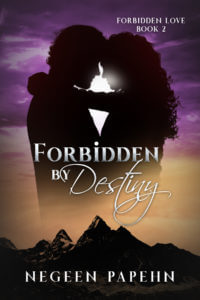
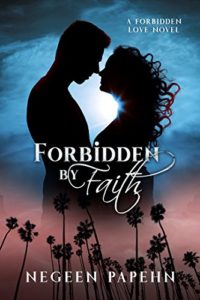
Forbidden by Faith is already available for purchase and Forbidden by Destiny is available for pre-order through Amazon.
********************
Excerpt from Forbidden by Destiny
CHAPTER ONE
I bounce back and forth on my toes. I have no idea what’s taking him so long, but I wish he’d hurry up. I just want to get this over with.
I fidget uncomfortably before the steel gray door. It’s a sunny day, a light breeze bustling through the neighboring trees. I’m on the second floor of the apartment building, which gives me a direct view of the leaves. They’re bright green against the backdrop of the blue sky. A squirrel jumps across the branches, an unidentifiable seed between his teeth.
It’s cool out, despite the sun, and I pull my sweater in a bit tighter around my waist. I push my red hair off my shoulder, annoyed at how it clashes against the dark blue material, making it look more orange than usual. I worry that my proximity to the ocean is turning the curls into a frizzy poof as I stand here. The dreaded Persian girl hair—never a dull moment.
Why am I so nervous? I didn’t break up with him—Sara did.
When Sara asked me to get her things from the apartment, I couldn’t say no. She’s been in the hospital with Maziar every day since the accident. She claims she can’t leave him, but I know she just doesn’t want to face Ben. She’s not good at confrontation, especially when she’s just torn his heart out from his chest after promising him forever. I don’t blame Ben for hating her. I just hope I don’t get stuck in the crossfire.
I’m standing in front of his door after a two-hour drive, wondering why I agreed to do this. I should have told her to send her brother. I imagine that exchange would at least be quick, if not painless.
The metal apartment numbers are gold, clashing against the gray. What an odd color choice. The paint’s chipping off, no doubt from the dampness of the ocean breeze and longtime sun exposure. I have the urge to reach out and flick off a dried piece, when the door swings open.
Ben stands towering in the frame. His six feet dwarfs my small five-foot-two stature. The sun is glaring in his direction, reflecting a strange haze around him, almost as if he’s glowing. For a moment, he reminds me of an angel painted on the ceiling of the Sistine Chapel. His crystal blue eyes sharpen the image. Wrinkles fan out prominently from their edges as he scowls at me. There are dark circles framing his lids. He looks exhausted and there’s an edge to him, like he’s ready for a fight. I don’t blame him for directing it at me. Currently, I’m Sara’s stand-in.
“Hey, Ben.”
“Hey, Leyla.” We stand frozen in an awkward staring contest. “Come in,” he finally says.
He pushes the door wider, taking a step back, giving me space to enter. I can smell his aftershave, it’s mingled with the scent of soap, and his hair’s wet. He’s in a pair of blue sweats and a crisp white T-shirt. His phoenix tattoo is visible on his arm, the outline of its tail and wings stark against his golden skin. I’ve always loved that tattoo.
The warmth of his gaze warns me that I’m staring. He’s watching me closely. A puzzled expression transforms into a pull at the corner of his lips as he suppresses a smile. What am I doing?I shake my head, trying to dislodge my thoughts. I’m here to get my best friend’s things not gawk at her ex-boyfriend.
“You want something to drink?” he asks, catching me off-guard.
“Um, sure.” I stumble over my words, having expected him to throw the boxes, and me, out of the door instantly.
“I have Coke or water.”
“I’ll take a Coke, please.”
“Coming right up.” I catch him laugh as he turns toward the kitchen door.
I’m mortified. How long was I checking him out? And why does he seem to find that amusing?Thank goodness there’s a wall separating us so he can’t see the red I’m sure is creeping up my neck. These are the times I wish I had the classic Iranian olive tone instead of my strange milky white skin. I’m a real Persian anomaly. My sister likes to tell me I’m adopted.
